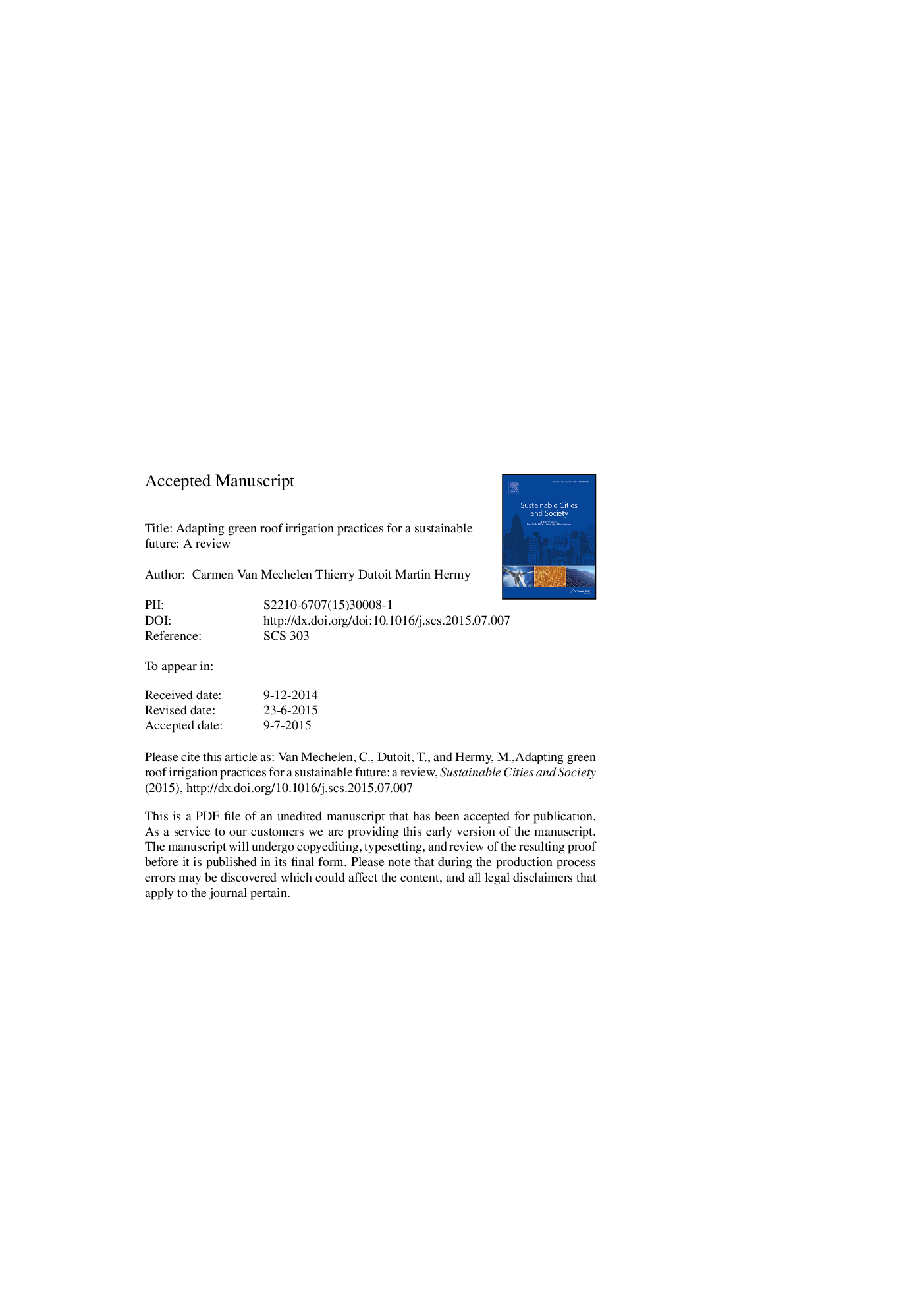| Article ID | Journal | Published Year | Pages | File Type |
|---|---|---|---|---|
| 6776103 | Sustainable Cities and Society | 2015 | 43 Pages |
Abstract
Sustainable water management is an important global action to alleviate the growing pressure on our water resources and a way to balance both socio-economic and environmental water needs. Irrigation of green roofs and other urban green infrastructures often has a negative connotation in a water management context. This is especially the case in semi-arid regions where both water scarcity during summer and other water needs compromise the public support of urban irrigation systems. However, irrigating green roofs is also beneficial as it improves plant survival and temperature control. Information on green roof irrigation is still very scarce, and this review attempts to draw attention to alternative water sources and water conservation strategies in order to make green roof irrigation practices more sustainable. Suggestions for more sustainable green roof irrigation showed that water can be conserved by adapting irrigation requirements (i.e. by targeting the vegetation or materials), by using alternative irrigation sources (e.g. gray water and rainwater harvesting) or by controlling and monitoring irrigation regimes. Based on the deficit irrigation strategy, irrigation specifications for green roofs in different climates were proposed. It became clear that irrigation is essential during establishment and the first growing season on all types of green roof and in all climates here considered. Afterwards, irrigation is necessary on green roofs in (semi)-arid climates, and advised in small amounts in the other climates. If public awareness of sustainable water consumption is promoted and if green roofs are designed carefully, then irrigation practices can be sustainable in the long term and contribute to better urban life quality.
Related Topics
Physical Sciences and Engineering
Energy
Renewable Energy, Sustainability and the Environment
Authors
Carmen Van Mechelen, Thierry Dutoit, Martin Hermy,
